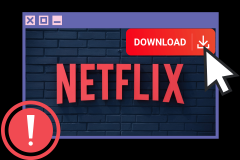The U.S. Department of Justice has claimed that TikTok and its parent company, ByteDance, have gathered “bulk” data on users’ views on gun control, abortion, and religion, and sent it to China. The information was reportedly collected through an internal communication tool called Lark.
In a filing from July 26, the Justice Department reported that since 2022, Lark had contained multiple internal search tools developed and operated by ByteDance engineers for scraping TikTok user data, including U.S. user data.
Lark is similar to internal messaging services such as Slack and Microsoft Teams. However, according to Techspot, it also gathers user data such as photos, country of residence, IP address and device, as well as user IDs.
The document stated that one of those tools “allowed ByteDance and TikTok employees in the United States and China to collect bulk user information based on the user’s content or expressions, including views on gun control, abortion, and religion.”
The Department also suggests that “significant amounts of restricted U.S. user data (including but not limited to personally identifiable information)” were shared over Lark.
“This resulted in certain sensitive U.S. person data being contained in Lark channels and, therefore, stored on Chinese servers and accessible to ByteDance employees located in China,” the DoJ added.
Another tool allegedly included policies that allowed the suppression of content on the platform based on the user’s use of certain words. Although some of these policies applied only to users based in China, others may have been used to target TikTok users outside of China.
Oracle’s scrutiny of TikTok user data
The filing also targets the American multinational tech firm Oracle over its attempted partnership with ByteDance under a “national security agreement” (NSA) that would ideally have TikTok operating under strict conditions.
The software company began reviewing TikTok’s source code in 2022, which contained two billion lines of code. That being said, it was estimated that reviewing it in its entirety would take three years, hence the proposal was rejected.
“But the source code is not static,” the document notes. “ByteDance regularly updates it to add and modify TikTok’s features. Even with Oracle’s considerable resources, perfect review would be an impossibility.”
The DoJ argued that tech providers would “lack insight into ByteDance’s communications with PRC officials, ByteDance’s use of US user data, and ByteDance’s other TikTok-related activities,” hence deeming the partnership “too great a risk.”
Our statement on the DOJ brief filed today:
"Nothing in this brief changes the fact that the Constitution is on our side. The TikTok ban would silence 170 million Americans' voices, violating the First Amendment. As we've said before, the government has never put forth proof of…
— TikTok Policy (@TikTokPolicy) July 27, 2024
TikTok rejected the claims in a post on X, stating: “Today, once again, the government is taking this unprecedented step while hiding behind secret information. We remain confident we will prevail in court.” ByteDance has filed a countersuit seeking to block the law that forces the video-sharing app to separate from the company by January 19 or face a ban.
The U.S. Court of Appeals for the District of Columbia is expected to hold oral arguments on the legal challenge on September 16.
Featured image: Ideogram



 Fact Checked by
Fact Checked by 



























